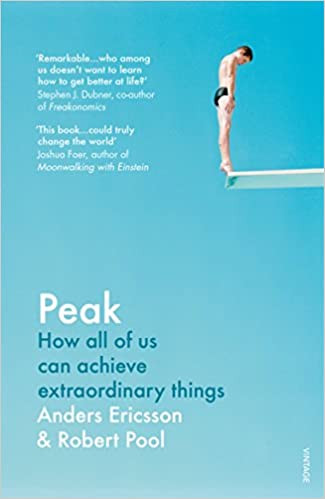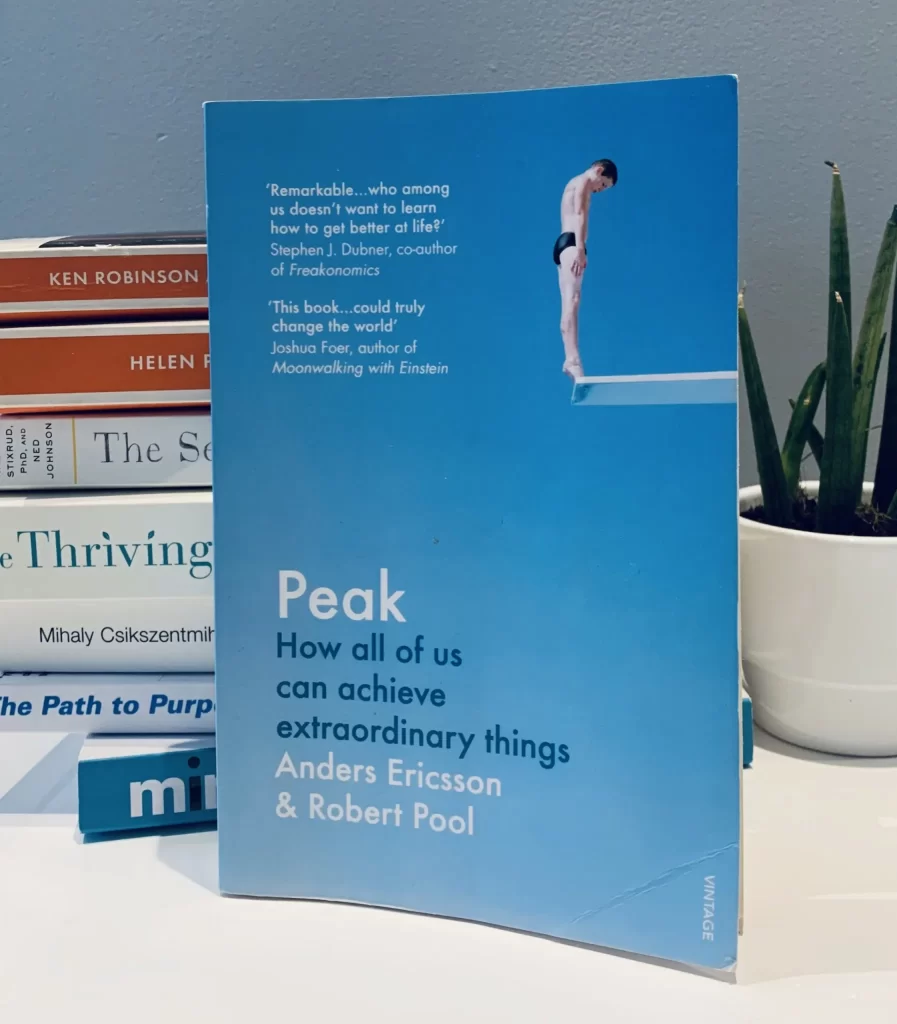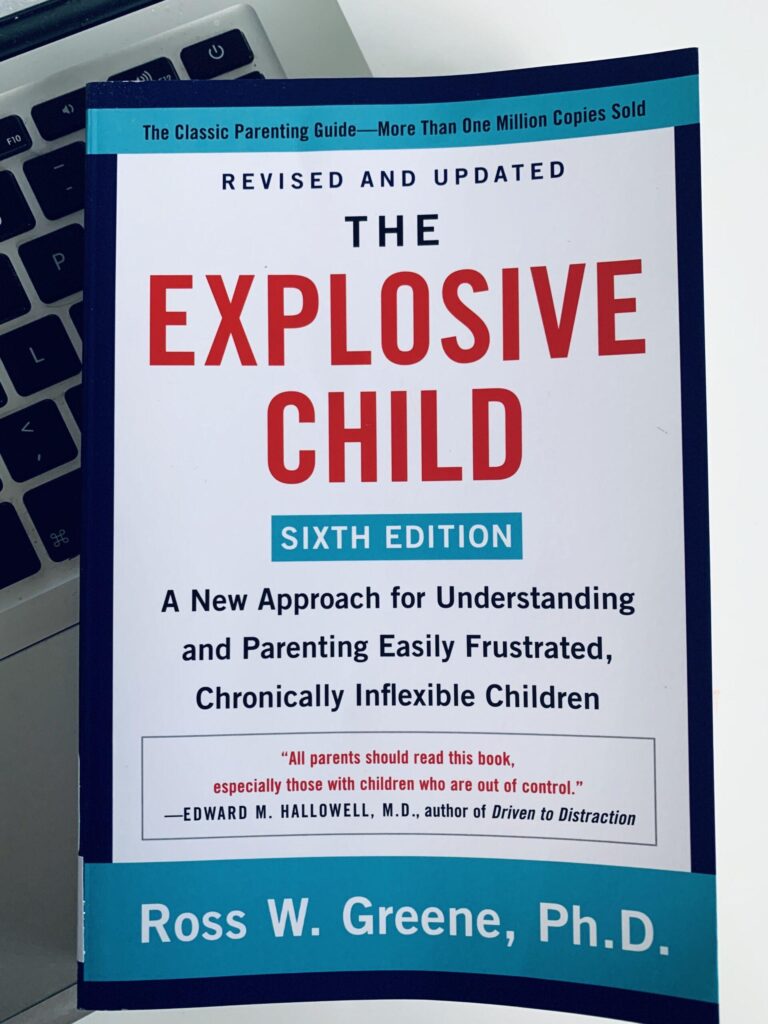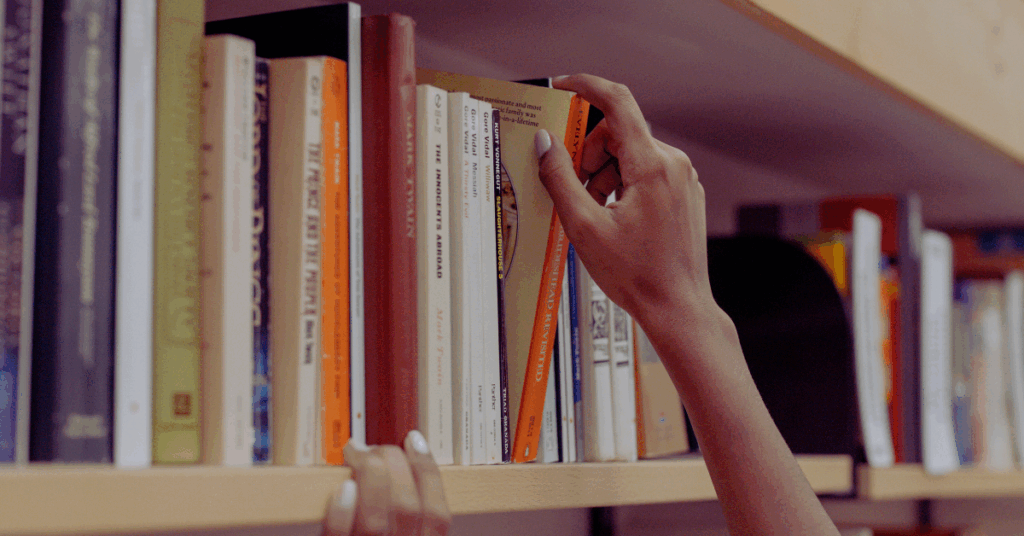 Peak – Book Summary
Peak – Book Summary
How all of us can achieve extraordinary things
Anders Ericsson & Robert Pool
Vintage; 01 edition (20 April 2017)
About the authors:
Anders Ericsson was a professor of psychology and Conradi Eminent Scholar at Florida State University. He is the world’s leading scientist studying expertise —looking at how the people who are the best at what they do became the best, and what makes ordinary people achieve the extraordinary.
Ericsson’s research has been widely cited in major newspapers and magazines worldwide. He has worked with major international organisations and Oxford, Stanford and Harvard medical schools, teachers and educational researchers, professional sports teams (Manchester City Football Club, Saracens Rugby Union Club, UK Sport, England and Wales Cricket Board), and military groups.
Robert Pool is a science writer with a PhD in mathematics from Rice University. He has worked at some of the world’s leading science publications, including Science and Nature, and his writing has appeared in many others.
About the book:
If you want to get better at anything or master any skill, this book is for you. Based on three decades of research, Ericsson and Pool show that you don’t have to be a genius to achieve extraordinary things. Only the right kind of practice and time will help you improve and master pretty much any skill that matters to you. We would also recommend Peak to all the parents interested in helping their children reach their full potential.
Key ideas from the book:
“Why are some people so amazingly good at what they do? Anywhere you look, from competitive sports and musical performance to science, medicine, and business, there always seem to be a few exceptional sorts who dazzle us with what they can do and how well they do it. And when we are confronted with such an exceptional person, we naturally tend to conclude that this person was born with something a little extra. ‘He is so gifted,’ we say, or, ‘She has a real gift.’
But is that really so? For more than thirty years I have studied these people, the special ones who stand out as experts in their fields—athletes, musicians, chess players, doctors, salespeople, teachers, and more. I have delved into the nuts of bolts of what they do and how they do it. I have observed, interviewed, and tested them. I have explored the psychology, the physiology, and the neuroanatomy of these extraordinary people. And over time I’ve come to understand that, yes, these people do have an extraordinary gift, which lies at the heart of their capabilities. But it is not the gift that people usually assume it to be, and it is even more powerful than we imagine. Most importantly, it is a gift that every one of us is born with and can, with the right approach, take advantage of.”
We don’t need any special talent to become experts in a chosen field. Only the right kind of practice and time lead to improvement and mastery. That means we all can reach our full potential in whatever we are passionate about.
The Gift – we all have it
“Over my years of studying experts in various fields, I have found that they all develop their abilities … through dedicated training that drives changes in the brain (and sometimes, depending on the ability, in the body) that make it possible for them to do things that they otherwise could not … the clear message from decades of research is that no matter what role innate genetic endowment may play in the achievements of ‘gifted’ people, the main gift that these people have is the same one we all have—the adaptability of the human brain and body, which they have taken advantage of more than the rest of us.”
We all have “a gift” inside of us – the adaptability of our brain and body. That means that we can improve. All of us.
Of course, there are some genetic endorsements, which make a difference. For example, a super short guy isn’t likely to become a professional basketball player, and it would be hard for a super-tall woman to become a top gymnast.
But we all can shape our brains and bodies in truly phenomenal ways. And the experts among us who do the seemingly impossible things actually know that and take full advantage of this gift.
This is important because often, we give up something just because we believe that we (or our children) are simply not gifted to do it. But in fact, we need time and the right approach to practice.
The power of purposeful practice
“Purposeful practice has several characteristics that set it apart from what we might call ‘naive practice,’ which is essentially just doing something repeatedly, and expecting that repetition alone will improve one’s performance.”
Naïve practice vs Purposeful practice
Doing the same thing over and over again, hoping to get better – that’s a naïve practice. And the research shows that it doesn’t lead to adaptability and improvement. But purposeful, thoughtful and focused practice – that’s what makes a difference. Here are the top qualities of the purposeful practice:
- Purposeful practice has well-defined, specific goals.
What do you want to achieve? Take a general long-term goal (e.g. get better at something) and turn it into specific measurable “mini-goals” with a clear plan on how to achieve them. And top it up with a realistic expectation of improvement.
- Purposeful practice is focused.
If we are calm, relaxed and just “having fun” during our practice, we are not actually practicing. You need to focus on your task and give it your full attention.
- Purposeful practice involves feedback.
It’s good to have some feedback on what you are doing right. In fact, meaningful positive feedback is crucial for maintaining motivation. But in order to improve, you need immediate feedback on where and how you are falling short. It will help you to identify what you are doing wrong and how you can improve.
- Purposeful practice requires getting out of one’s comfort zone.
“Getting out of your comfort zone means trying to do something that you couldn’t do before”. This is one of the key elements of the deliberate practice and that’s how you improve. Stretch yourself ☺
To summarise: “So here we have purposeful practice in a nutshell: Get outside your comfort zone but do it in a focused way, with clear goals, a plan for reaching those goals, and a way to monitor your progress. Oh, and figure out a way to maintain your motivation.”
Deliberate practice
But to achieve extraordinary results, purposeful practice is not enough. Instead, deliberate practice is the approach to practice and training, which has been proven to be the most powerful and effective way to improve our abilities in whatever we do.
So what is deliberate practice? It’s basically the purposeful practice plus:
- a well-developed field (like sports, music, chess, etc.) that have clear and established top performers and equally clear means to achieving that level of mastery
- having a teacher who can provide a very clear training program aimed at helping a student to improve performance
So, in fact it is “a purposeful practice that knows where it is going and how to get there” ☺
“Deliberate practice is informed and guided by the best performers’ accomplishments and by an understanding of what these expert performers do to excel.”
Harness adaptability and challenging homeostasis
“The fact that the human brain and body respond to challenges by developing new abilities underlies the effectiveness of purposeful and deliberate practice. The training of a London taxi driver or an Olympic gymnast or a violinist at a music academy is, in essence, a method of harnessing the adaptability of the brain and body to develop abilities that would otherwise be out of reach.”
The human body is incredibly adaptable. So is the human brain. In fact, you can train your brain the same way as your muscles. Moreover, you can physically grow your brain and shape it in the way you want through conscious and deliberate training.
But our bodies also prefer stability; therefore, every cell in our body is constantly working to maintain this sense of stability—adjusting everything from our temperature and blood pressure to our pH balance and blood sugar levels. It is called homeostasis – a tendency of a system to do everything for maintaining stability.
But importantly, our bodies are able to create higher levels of homeostasis if we push ourselves out of our comfort zone:
“This is the general pattern for how physical activity creates changes in the body: when a body system—certain muscles, the cardiovascular system, or something else—is stressed to the point that homeostasis can no longer be maintained, the body responds with changes that are intended to reestablish homeostasis.”
So challenge your homeostasis, get out of your comfort zone and grow ☺ In whatever you do. And remember, “there may be limits, but there is no indication that we have reached them yet.” Your upper limits are unknown and unknowable.
P.S.: Anders also talks a lot about our brain’s adaptability – neuroplasticity. And that’s our greatest gift! Again, we all have it!
To summarise: “With deliberate practice, however, the goal is not just to reach your potential but to build it, to make things possible that were not possible before. This requires challenging homeostasis—getting out of your comfort zone—and forcing your brain or your body to adapt. But once you do this, learning is no longer just a way of fulfilling some genetic destiny; it becomes a way of taking control of your destiny and shaping your potential in ways that you choose.”
Mental representation
“The main thing that sets experts apart from the rest of us is that their years of practice have changed the neural circuitry in their brains to produce highly specialized mental representations, which in turn make possible the incredible memory, pattern recognition, problem solving, and other sorts of advanced abilities needed to excel in their particular specialties.”
Through years of practice top performers are building a huge library of quality mental representations. These mental representations help them to make faster and better decisions in any given situation.
The more you study a particular subject, the better your mental representations are, and the better you get at studying. Same with any other skills – practising a skill improves your mental representation, and mental representation helps you improve your skill.
The gold standard myth
“This is the basic blueprint for getting better in any pursuit: get as close to deliberate practice as you can. If you’re in a field where deliberate practice is an option, you should take that option. If not, apply the principles of deliberate practice as much as possible. In practice this often boils down to purposeful practice with a few extra steps: first, identify the expert performers, then figure out what makes them so good, then come up with training techniques that allow you to do it, too.”
In the book, Ericsson actually challenges Malcolm Gladwell’s “the ten-thousand-hour rule” – that to become a master in most fields, you need to practice about ten thousand hours.
His research on violinists showed that, although the best violinists had actually put in 10,000 hours of practice by the time they were 20 (on average), that wasn’t enough for them to become the best in the world. They had to spend another decade or two to reach those heights (that equals to 20,000 to 25,000 hours until they became truly the best).
To take it further, Anders argues that Gladwell could have just as easily picked the 7,400 hours these highest performing students had put in by age 18 (but it doesn’t sound sexy as 10,000.) In other fields, the number of hours to reach mastery may be considerably less or more than 10,000, so in fact, the 10,000 hour rule is not actually a rule.
So anyway, the point is that it takes a lot of deliberate practice to become great, and it is not about the time but quality and focus.
Shorter training session with 100% concentration
“…shorter training sessions with clearer goals are the best way to develop new skills faster. It is better to train at 100 percent effort for less time than at 70 percent effort for a longer period.”
Want to develop a new skill faster? Go deep and give 100%. Deliberate practice + 100% of your attention is your recipe for success.
How to practice without a teacher: rule of three Fs
“To effectively practice a skill without a teacher, it helps to keep in mind three Fs: Focus. Feedback. Fix it. Break the skill down into components that you can do repeatedly and analyze effectively, determine your weakness, and figure out ways to address them.”
Not everyone has an opportunity to have a great teacher. But in fact, by concentrating on the work of best masters, practising on their example (e.g. copying their work in the beginning), reflecting on your mistakes, fixing them over and over again, you can also build effective mental representations. Key here – you need to act and learn by practising (deliberately).
Talent vs Practice
“The results from the chess study provide a crucial insight into the interplay between “talent” and practice in the development of various skills. While people with certain innate characteristics – IQ, in the case of the chess study – may have an advantage when first learning a skill, that advantage gets smaller over time, and eventually the amount and the quality of practice take on a much larger role in determining how skilled a person becomes.”
That reminds me of Angela Duckworth’s wisdom in Grit – talent matters, but effort counts twice.
But Anders goes further, challenging the talent and says that there is no evidence that any genetically determined abilities actually play a role in deciding who will be amongst the best.
Moreover, no one ever found a gene which predicts extraordinary performance in anything – so no “math gene” and no “music gene” – it’s all down to deliberate practice. And if genes do play a role, “their role would play out through shaping how likely a person is to engage in deliberate practice or how effective that practice is likely to be”.
Action steps for you:
- Think about who is the top expert in your field. Reflect on what did they do to achieve this level of performance.
- Think about how could you practice more deliberately?
- If your child has great ambitions to become a top performer in something, think about how could you help him to shift towards a deliberate practice?
Quotes from the book:









